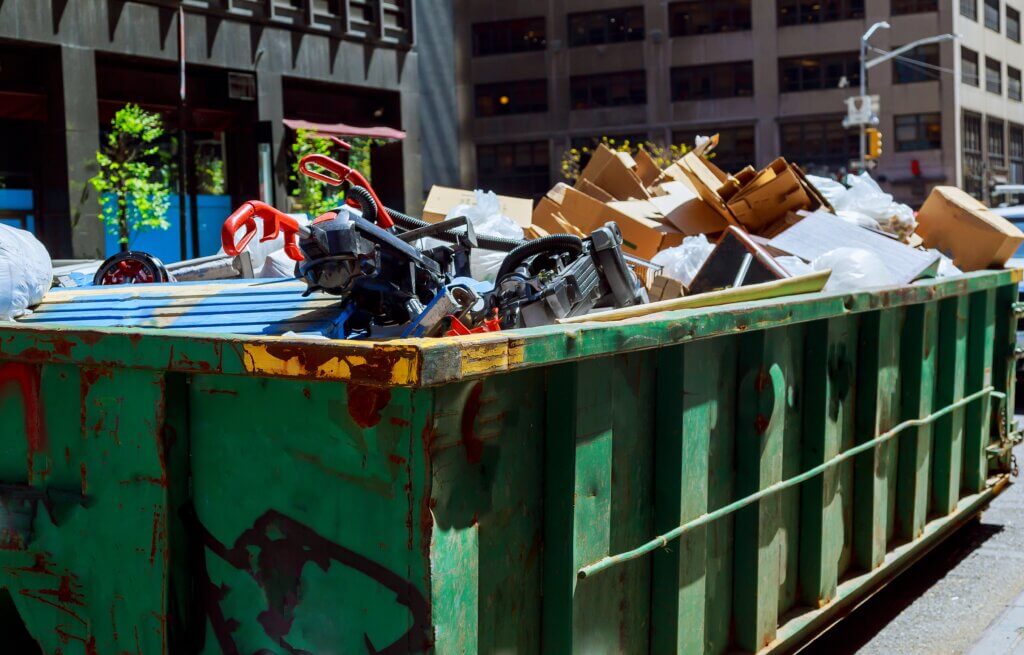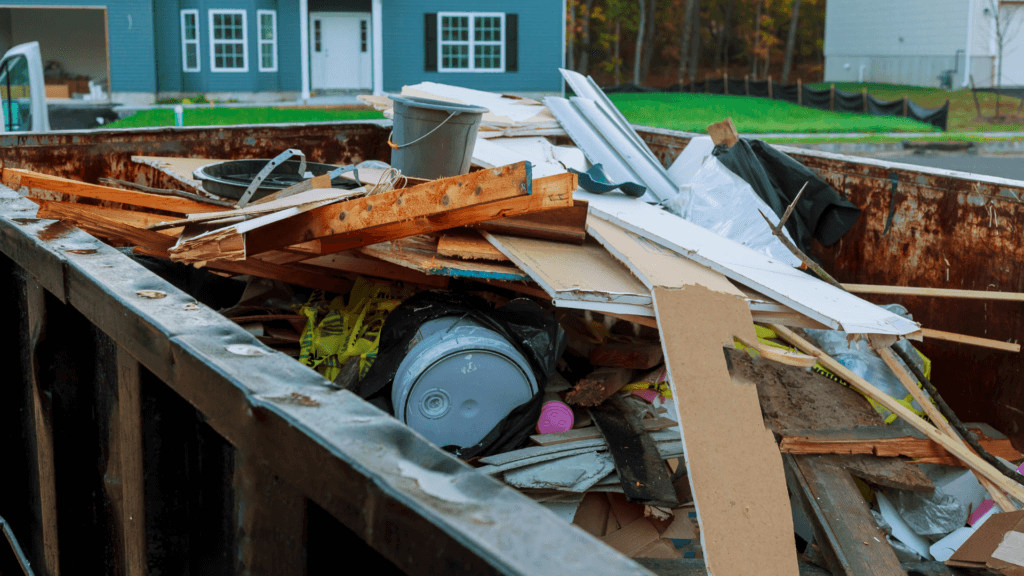The Role of Roll-Off Dumpsters in Emergency and Disaster Relief
Emergencies and disasters, whether natural or man-made, leave behind more than just trauma and destruction. They produce a mountain of debris, from destroyed homes to fallen trees, and everything in between. Clearing this rubble is an urgent priority, not just to pave the way for rebuilding, but also to prevent potential health risks and further damage.
Enter roll-off dumpsters, an unsung hero in such difficult times. For many, these large containers are just tools for construction sites or home renovations. But for communities grappling with the aftermath of a disaster, they’re an important part of the recovery process. This article shines a light on the indispensable role roll-off dumpsters play in emergency and disaster response, and why every community should be prepared with this crucial asset.
How Roll-Off Dumpsters Help in Immediate Response
Emergencies don’t wait. When disaster strikes, communities are often left reeling from the aftermath. After the chaos settles, there is always a need to manage waste and debris. This is where roll-off dumpsters step up to the challenge.
Quick Deployment
In the wake of a disaster, time is of the essence. Roll-off dumpsters are designed to be rapidly deployed to affected sites. These large containers can be quickly moved and placed, making them an asset in emergency situations. Two main benefits make them stand out:
- Speed: Easily transported and set up, they save precious time.
- Capacity: Their large design handles a large amount of waste, aiding in faster cleanup.
Waste Segregation
Post-disaster cleanup isn’t just about hauling away debris. It’s crucial to separate different types of waste. Mismanagement can lead to severe health and environmental consequences.
- Hazardous Waste: Some disasters, especially industrial accidents, can produce toxic waste. It’s essential to segregate this from general debris to avoid contamination.
- General Debris: Items like broken furniture, damaged electronics, and rubble can be separated and removed safely.
Health and Sanitation
After any major disaster, there’s a risk of disease outbreaks. Proper waste management using roll-off dumpsters is vital to mitigate this threat.
- Preventing Contamination: Stagnant water and decay can become breeding grounds for diseases. Efficient waste removal helps minimize this risk.
- Restoring Normalcy: Clearing debris paves the way for essential services to be restored, bringing a semblance of normalcy back to affected communities.
In the heart of a crisis, while most people are thinking of immediate safety, it’s easy to overlook the looming waste management challenges. However, for those in the roll-off dumpster business, this responsibility is front and center. Properly placed and effectively utilized dumpsters can be a beacon of hope in desperate times, signaling the start of recovery and rebuilding.

Recovery and Rehabilitation: The Role of Roll-Off Dumpsters
Emergencies can strike when least expected, leaving vast areas paralyzed with debris. In the immediate aftermath, communities face the massive challenge of clearing out wreckage to make way for relief and rebuilding efforts. This is where the value of roll-off dumpsters becomes crystal clear.
Efficient Debris Management
- Quick Deployment: In the wake of a disaster, roll-off dumpsters can be swiftly placed in strategic locations. This allows for the immediate start of cleanup activities.
- Large Capacity: Designed to handle substantial amounts of waste, these dumpsters can accommodate a range of debris from household items to construction rubble.
Facilitating Safe Operations
- Safety First: Handling debris after a disaster can pose risks. With roll-off dumpsters, waste can be contained safely, reducing the chances of injuries.
- Environmental Care: Uncollected debris can become a breeding ground for pests or lead to water contamination. Roll-off dumpsters help ensure that waste is disposed of in an environmentally-conscious manner.
Paving the Way for Rehabilitation
- Clearing Pathways: For rehabilitation efforts to kick off, clear and accessible roads are a necessity. With dumpsters aiding the swift removal of debris, essential services can reach affected areas faster.
- Setting the Stage for Rebuilding: Once the debris is out of the way, rebuilding becomes feasible. Whether it’s setting up temporary shelters or constructing new homes, having a cleared area is paramount.
Roll-off dumpsters serve as the backbone in the initial stages of recovery after a disaster. Their utility goes beyond just waste collection; they are pivotal in creating a safe environment and laying the foundation for community resurgence.

Types of Emergencies and Disasters: How Roll-Off Dumpsters Help
Emergencies and disasters vary greatly in nature and intensity, but the aftermath often has a common theme: destruction and debris. Roll-off dumpsters play a significant role in managing these challenges across different scenarios. Let’s delve into some of these emergencies and how roll-off dumpsters can be a game-changer.
Natural Disasters
- Hurricanes and Storms: Post-storm landscapes often feature fallen trees, damaged structures, and scattered household items. Roll-off dumpsters can be dispatched rapidly, allowing communities to start the clean-up process promptly.
- Floods: Once floodwaters recede, they often leave behind mud, damaged appliances, and ruined furniture. Having roll-off dumpsters on site aids in efficient and safe removal of these materials.
- Wildfires: After the flames are doused, the remnants include charred vegetation and ruined structures. Roll-off dumpsters assist in clearing this waste, enabling the restoration of habitats and rebuilding efforts.
Man-Made Disasters
- Industrial Accidents: Incidents like chemical spills or factory explosions produce vast amounts of waste, including hazardous materials. Specialized roll-off dumpsters can handle such waste, ensuring it’s managed properly.
- Urban Fires: In densely populated areas, fires can cause substantial structural damage. Roll-off dumpsters assist in the cleanup, ensuring streets are cleared quickly and rebuilding can commence.
Regardless of the nature of the emergency or disaster, the timely removal and proper management of debris are crucial for recovery and safety. Roll-off dumpsters, given their versatility and capacity, prove to be indispensable tools in these challenging times, facilitating both immediate relief and long-term rehabilitation.

Staying Prepared for Emergency in the Roll-Off Dumpster Industry
The role of roll-off dumpsters in emergency and disaster response cannot be understated. They not only facilitate rapid cleanup and waste management, but also symbolize a community’s resilience and determination to rebuild. Whether facing the fury of nature or the challenges of man-made events, having efficient waste management solutions like roll-off dumpsters can greatly accelerate recovery efforts. For roll-off dumpster businesses, understanding this pivotal role and being prepared to respond swiftly can make a profound difference in aiding communities during their most trying times.
FAQs: Roll-Off Dumpsters in Emergency and Disaster Response
How quickly can roll-off dumpsters be dispatched during emergencies?
Most roll-off dumpster businesses prioritize emergency and disaster responses, aiming to dispatch dumpsters as swiftly as possible. The exact timing can vary based on the scale of the disaster and logistical challenges.
Are there specific types of dumpsters for disaster response?
While the fundamental design of roll-off dumpsters remains consistent, certain situations might require specialized dumpsters, like those with reinforced structures or different sizes to manage varied waste volumes.
How do roll-off dumpster businesses work with local authorities during emergencies?
Collaboration is key. Businesses often liaise with local emergency response teams, city officials, and relief organizations to ensure that dumpsters are placed in strategic locations for optimal waste management.
What precautions are taken for hazardous waste post-disasters?
Post-disaster cleanup can involve hazardous waste like chemicals, bio-waste, or flammable materials. Roll-off dumpster companies often provide guidelines for segregating such waste and might offer specialized dumpsters or liners for safe containment.
Can communities request additional roll-off dumpsters in prolonged recovery phases?
Yes, as recovery and rebuilding efforts progress, the need for waste management might increase. Roll-off dumpster businesses can accommodate these evolving needs by deploying additional dumpsters or offering longer rental periods.



